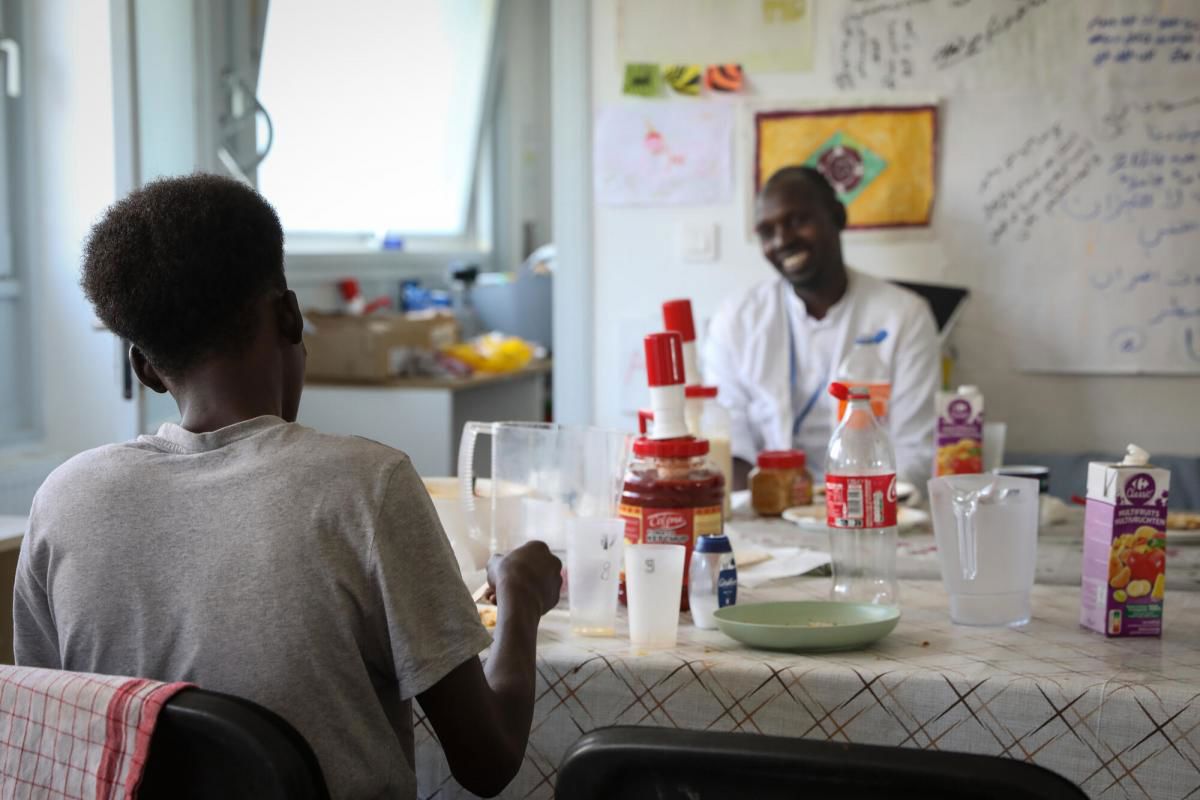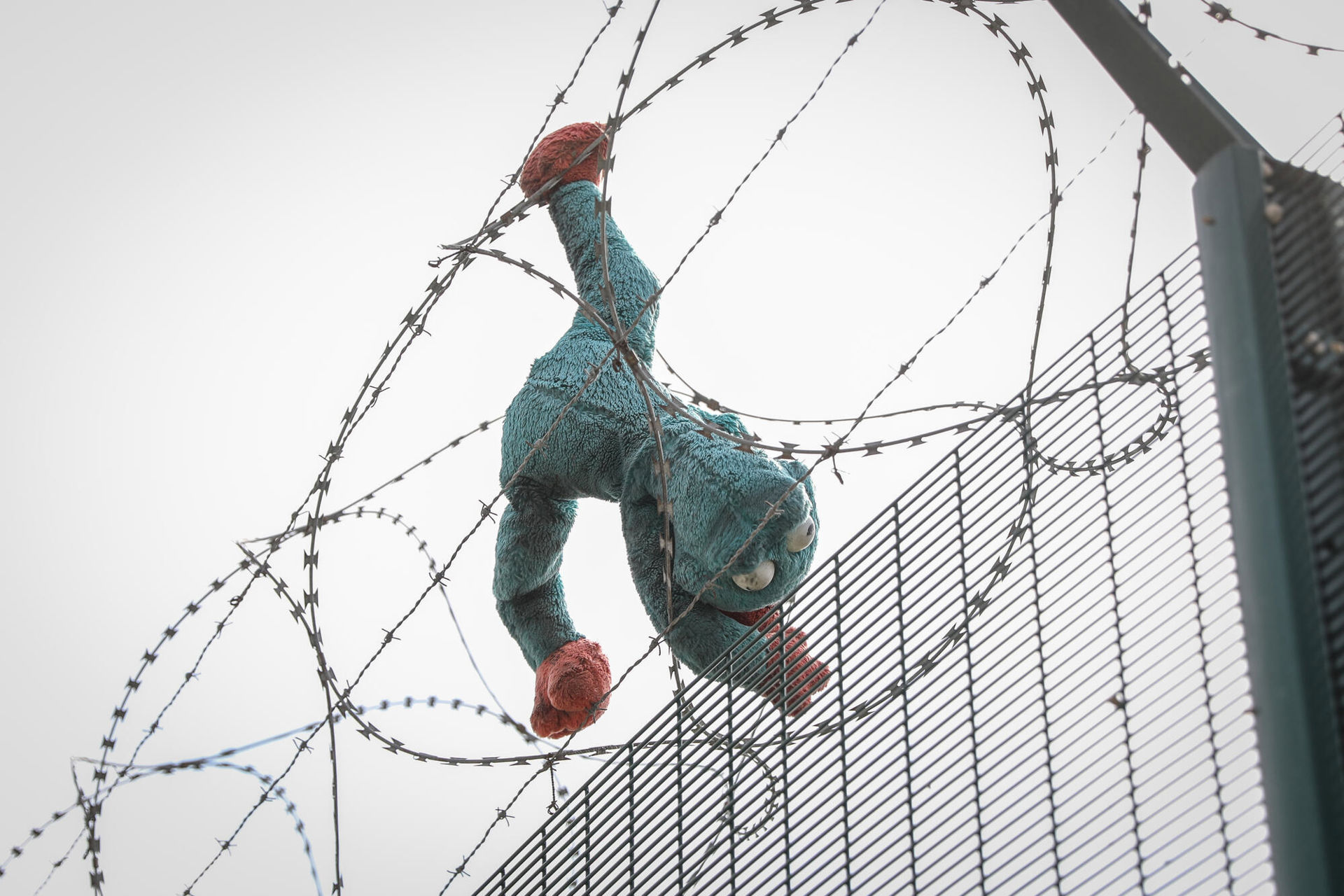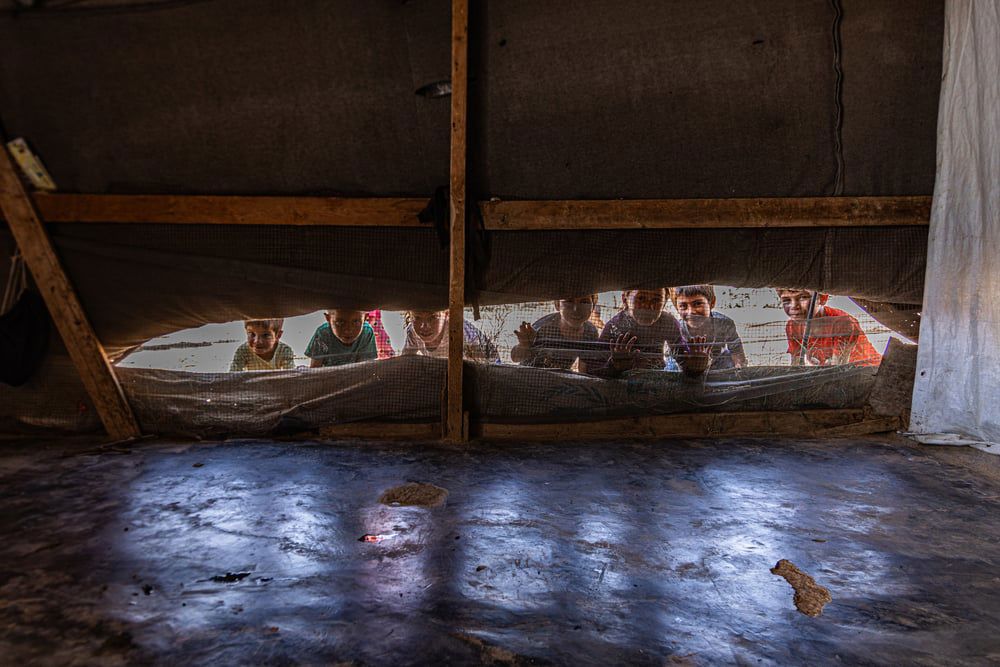Since July 2023, Médecins Sans Frontières has been providing medical, psychological and social support to unaccompanied minors in transit in Calais in its day centre. Hundreds of young people shared with the MSF team painful stories about their migratory journeys and a violent reception in France.
Repeated and trivialised violence
Since the centre opened, MSF has received 180 young people, mainly from Sudan, Afghanistan, and Syria. More than half of them reported having been victims of violence along their migratory route, whether in transit countries such as Libya or Tunisia, or in France. More than a third of the young people’s testimonies referred to ill-treatment and violence by the police in France, particularly in Calais.
According to the young people interviewed, violence mainly occurs during dismantling operations and during attempts to cross the Channel by boat or lorry. The types of physical violence most frequently reported were kicks, punches, blows with truncheons causing skin lesions and the use of tear gas at eye level and on personal belongings. These abuses often occur when volunteers and associations are not onsite to help migrants, asylum seekers and refugees.
Far from the camps, at the MSF day centre, young people find a place where they can be listened to and feel welcomed, a place where the bond of trust created by the team allows them to speak freely. "Sometimes they check that there are no cameras, and they take us to places out of sight to beat us up. The last time this happened to me, I was with a friend. The police took us to a van and beat us with truncheons. I was beaten so badly that I was bleeding," says Ahmed*, a 16-year-old Sudanese boy who was admitted to the MSF centre in February. When offered the chance to file a complaint, the young man refused for fear of endangering himself and the possible repercussions if he were to encounter the same police officers again along the way.
"Young people who migrate alone experience exile and violence at a particular time in their development, that of adolescence. Exile also means experiencing or witnessing traumatic events and violence that often goes unpunished. It becomes difficult and dangerous to trust others," explains Chloé Hannebouw, psychologist for MSF in Calais.
 MSF provides medical, psychological and social support to the unaccompanied minors in transit in Calais. © Léo Torréton/MSF
MSF provides medical, psychological and social support to the unaccompanied minors in transit in Calais. © Léo Torréton/MSF
Violence on top of pre-existing trauma
Since the re-opening of the MSF project in Calais in April 2023, 82 per cent of people seen for medical consultations and questioned about violence by MSF’s medical team have said they had been subjected to ill-treatment, torture, inhuman and degrading acts, particularly in Libya, Tunisia or on the Balkans route. "During interviews, young people can talk about terrible experiences of violence, detention and sometimes torture. Some young people also tend to compare the violence they suffer in Libya with the complicated living conditions in Calais. This comparison often leads them to minimise the harshness of their current situation in view of the extreme violence experienced over there," says Hannebouw.
Since the start of operations, the MSF psychologist has carried out 152 consultations with minors, either unaccompanied or accompanied by their families. Among the most frequent symptoms, the young patients mention anxious ruminations, nightmares, insomnia and a feeling of powerlessness or inability to project themselves into the future. Some also mention suicidal impulses, particularly when they have been through particularly traumatic experiences or extreme violence.
"This repeated physical and psychological violence illustrates the human cost that France and the UK are ready to pay to secure their common border. A generalised normalisation of violence has taken hold throughout Europe. Calais is just one of many laboratories for the deterrence policies pursued by the European Union," says Feyrouz Lajili, coordinator of MSF's project in Calais.
“On the one hand I'm tired of trying to cross every day, but on the other I can't stay in these conditions in Calais. I've experienced episodes of racism and rejection that hurt too much. I can't forget them, and I can't imagine that one day I'll be able to live peacefully in France without experiencing violence and rejection.”
- Ahmed*, 16, from Sudan
“The police came to evacuate our camp…when they arrived, they destroyed everything: the tents, the blankets, our things, including the food! They smashed the eggs in front of us and soiled the food we had left over from the night before. I saw a policeman kick my friend, causing him to fall to the ground in the water and mud.”
- Ali*, 16, from Sudan
“When associations are present and they film them, the police don't like it and they stop, but when they leave, they become very violent. I've already been a victim of violence and many times a witness. We can't do anything because we don't have any papers, whereas they have all the rights. You can't even film, otherwise they get even more upset and take the phone and break it.”
- Omer*, 17, from Sudan
*Name changed to protect privacy.



